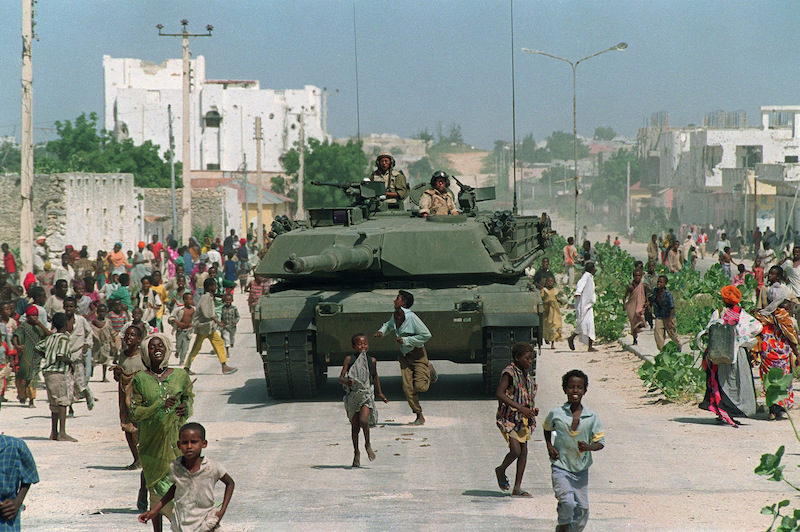
Most of us living in the West have never known hunger. In America, food shelves are easily accessed by the most vulnerable of society.
Despite living in a time where there is a global surplus of food, millions of people around the world are still suffering from famine. If you follow mainstream media coverage about these humanitarian disasters, they're most likely presented through the lens of climate change, high food prices and taxes.
But in places like Yemen, South Sudan, the Lake Chad basin of West Africa and Somalia, where images of skeletal children have become commonplace several countries in Africa and the Middle East, it is perhaps no coincidence that the epidemic of famine is directly linked to modern-day colonialism and imperialism led by the U.S.
It is in this part of the world where resource exploitation, the war on terror, military occupation and destabilization combine to create one of the most dire humanitarian crises of the modern era.
While environmental factors do play a role, policies set by powerful oil companies and state actors have created and reinforced the present situation.
In Somalia, where the U.S. has been waging a covert drone war, people have become accustomed to famine. In a span of just one year, between 2011 and 2012, over 260,000 people died, half of them under the age of 5, marking the worst famine in the last 25 years. According to data from Somalia's Food Security and Nutrition Analysis Unit (FSNAU), 4.6 percent of the total population and 10 percent of children under 5 died in southern and central Somalia alone.
The organization Somalia's Food Security and Nutrition Analysis Unit (FSNAU) found that "the result was widespread livestock deaths, the smallest cereal harvest since the 1991-94 civil war, and a major drop in labor demand, which reduced household income." Compounding environmental burdens were the wider impacts of British colonialism in Somalia, as well as U.S. militarism.
While the United States plundered Somalia for resources by way of mineral excavation and so-called oil exploration, past and present administrations have also applied their full military might. In 1993, during the Clinton presidency, images of famine and war were used to convince Americans that U.S. military efforts were necessary.
"We went [to Somalia] because only the United States could help stop one of the great human tragedies of this time," Clinton said. "In a sense, we came to Somalia to rescue innocent people in a burning house." What Bill Clinton didn't disclose was that the United States was one of the reasons why the house was on fire to begin with, and military efforts would not help to put out the flames.



Reader Comments
to our Newsletter